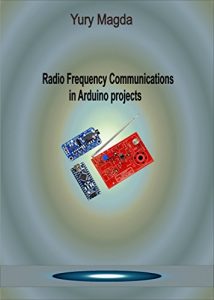Popular Raspberry Pi miniature computers and small development boards operating in real-time environment can be used together for designing complex and powerful measurement and control systems. In these systems, the high-level programming environment of Raspbian OS running on the Raspberry Pi can be applied for high-level data processing, while real-time signal processing will be performed by some popular and low-cost development board such as Arduino or Teensy 3.1. The great benefit of such configurations is that a developer doesn’t need to build external circuitry that may take a long time.
This highly practical guide describes how to build measurement systems that will include Raspberry Pi 2, Arduino Uno or Teensy 3.1 developments boards and will be controlled over a TCP/IP network or the Internet using a Web browser. Almost all applications from this guide use USB-to-Serial interfaces between Raspberry Pi, Arduino or Teensy 3.1.
The material of the book assumes that the readers are familiar, at least, with basics of designing and assembling electronic circuits. For most projects, having some basic skills in electronics will serve the readers well and allow them to understand what is going on behind the scenes. Each project is accompanied by a detailed description which helps to make things clear.
All projects were designed using Raspberry Pi 2 Model B and Arduino Uno or Teensy 3.1 boards. The source code for applications running on Raspbian OS was developed in Python. The Arduino and Teensy 3.1 applications were developed using Processing and supplemental libraries. Most projects described in this guide can be easily improved or modified if necessary.
This highly practical guide describes how to build measurement systems that will include Raspberry Pi 2, Arduino Uno or Teensy 3.1 developments boards and will be controlled over a TCP/IP network or the Internet using a Web browser. Almost all applications from this guide use USB-to-Serial interfaces between Raspberry Pi, Arduino or Teensy 3.1.
The material of the book assumes that the readers are familiar, at least, with basics of designing and assembling electronic circuits. For most projects, having some basic skills in electronics will serve the readers well and allow them to understand what is going on behind the scenes. Each project is accompanied by a detailed description which helps to make things clear.
All projects were designed using Raspberry Pi 2 Model B and Arduino Uno or Teensy 3.1 boards. The source code for applications running on Raspbian OS was developed in Python. The Arduino and Teensy 3.1 applications were developed using Processing and supplemental libraries. Most projects described in this guide can be easily improved or modified if necessary.










